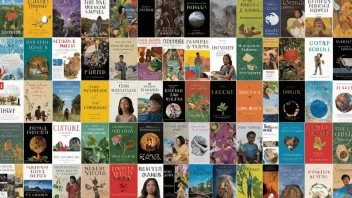What is existentialism in literature?
Existentialism is a philosophical movement that emphasizes individual existence, freedom, and choice. In literature, it often explores themes of absurdity, alienation, death, and the search for meaning in a seemingly indifferent universe.
Which classic novels explore existential themes?
- The Stranger by Albert Camus - This novel presents the life of Meursault, a man who lives a life devoid of meaning and grapples with the absurdity of existence.
- Crime and Punishment by Fyodor Dostoevsky - The protagonist, Raskolnikov, struggles with morality, guilt, and the consequences of his existential choices.
- Waiting for Godot by Samuel Beckett - This play epitomizes existential absurdity through its plotless narrative and the wait for a character who never arrives.
- The Metamorphosis by Franz Kafka - Kafka's tale of Gregor Samsa’s transformation into a bug highlights themes of alienation and the search for identity.
- Heart of Darkness by Joseph Conrad - This novella delves into the darkness of human nature and the existential crisis faced by its protagonist, Marlow.
How do existential themes affect character development?
Existential themes profoundly shape character development by forcing characters to confront their beliefs, choices, and the consequences of their actions. This often leads to profound internal conflicts and transformations, as characters navigate their search for meaning in a world that may seem chaotic and purposeless.
What are some common existential questions raised in classic literature?
- What is the purpose of life? - Many characters grapple with the meaning of their existence.
- Is freedom an illusion? - Characters often question the nature of their freedom and the constraints imposed by society.
- What happens after death? - The fear of death and its implications frequently surfaces in existential literature.
- Can we find meaning in an absurd world? - The struggle to find significance in life is a recurring theme.
How do existential themes in classic literature relate to modern issues?
Existential themes remain relevant today as they address universal human concerns such as identity, morality, and the search for meaning. Modern readers can relate to the feelings of alienation, anxiety, and uncertainty depicted in existential literature, making it a timeless exploration of the human condition.
Why should I read classic literature that explores existential themes?
Reading classic literature that delves into existential themes allows you to engage with profound philosophical questions that challenge your worldview. It encourages introspection and critical thinking, fostering a deeper understanding of yourself and the complexities of life.
What are some tips for approaching existential literature?
- Take your time: Existential literature often requires careful reading and reflection.
- Consider the historical context: Understanding the author's background and the time period can enhance your appreciation.
- Discuss with others: Engaging in conversations about the text can provide new insights.
- Reflect on your own beliefs: Relate the themes to your own life experiences for a more personal connection.
Are there any modern authors who explore existential themes?
Yes, many contemporary authors continue to explore existential themes. Notable examples include Haruki Murakami, whose works often incorporate elements of surrealism and existential musings, and David Foster Wallace, who addresses issues of meaning and despair in modern life.
In conclusion, classic literature provides a rich landscape for exploring existential themes that resonate with readers across generations. By engaging with these texts, we not only deepen our understanding of literature but also of ourselves and the world around us. Embrace the journey of exploration in classic literature, and allow the existential questions posed by the authors to challenge and inspire your own thoughts.






